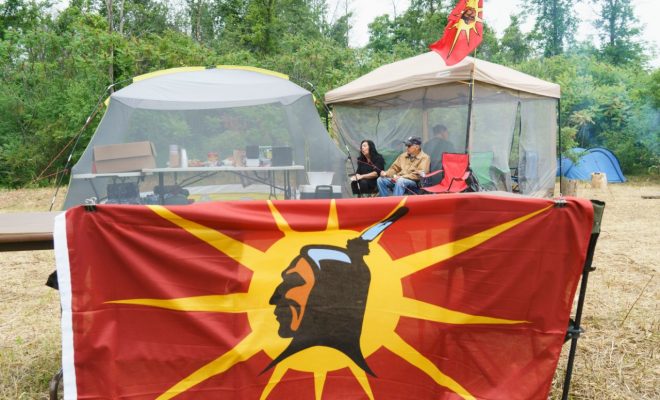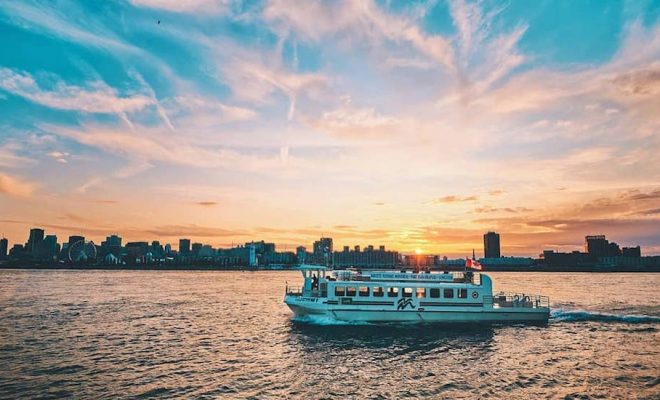‘We matter’: Mohawks camp out on disputed land near Montreal to stop housing project

MONTREAL — Members of a Montreal-area First Nation’s territory who are occupying a disputed parcel of land say they’ll camp out “as long as it takes” to stop a proposed housing project.
On Thursday afternoon, half a dozen children played around a clearing by a campfire and where three tents had been erected beneath flapping Mohawk flags. Six or seven adult community members sat in lawn chairs, chatting beneath a mesh tent that protected them from the drizzle.
Despite the relaxed mood, people at the camp said they were not willing to cede “a single inch” of the territory they claim.
“We matter, and we’re going to stop this,” said Kaherihshon Beauvais, a community member at the site. “It is our land, these are our children.”
Newly appointed Kahnawake Grand Chief Kahsennenhawe Sky-Deer said she is offering her full support to the effort.
“We have sent numerous letters to people in government offices, the prime minister … even to Quebec’s (Indigenous Affairs) Minister Ian Lafrenière and unfortunately, things have gone unanswered,” Sky-Deer, who was elected chief last weekend, said in an interview Thursday.
“It’s a very pressing issue for us. It’s about getting our lands back.”
Kahnawake Mohawks set up the encampment beside their community on July 1 in a wooded area bordering the municipality of Châteauguay, Que., on Montreal’s south shore. Châteauguay city council adopted a zoning change in the area on March 15, clearing the way for the construction of 290 homes on the land.
Mohawk council Chief Mike Delisle said the land is known as “Parcel E,” part of a land-transfer agreement with the Quebec government following the 2007 expansion of a major highway just south of Kahnawake. Quebec still owes Kahnawake 211 acres of land for the Highway 30 expansion, Delisle said in an interview.
The 211 acres are on the Seigneury of Sault St. Louis, which is part of a historical land claim by the Mohawks.
“We are looking for more than consultation, we need retribution for the past,” Delisle said. “It’s not a Châteauguay issue, it’s more of a federal and provincial one.”
Kahnawákeró:non Karihwakatste Deer, spokeswoman for the protest camp, said her community knew about the proposed housing project since last spring, adding that letters to the city council were not returned.
Representatives from Châteauguay were not immediately available for comment.
“We felt like July 1 was an appropriate day for us to make an encampment there because of the connection between the residential schools, with them taking our language and culture and land,” Deer said in an interview.









